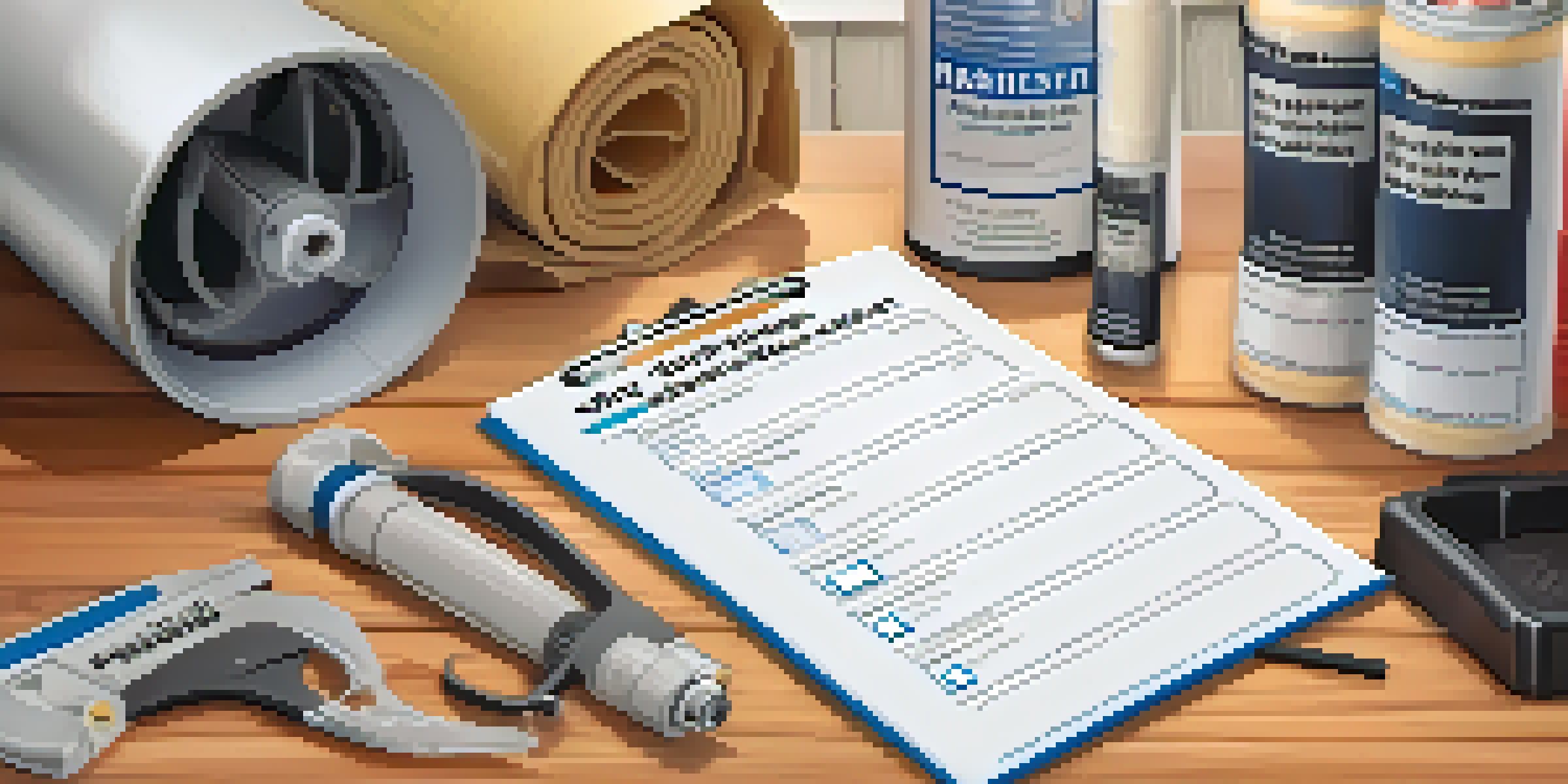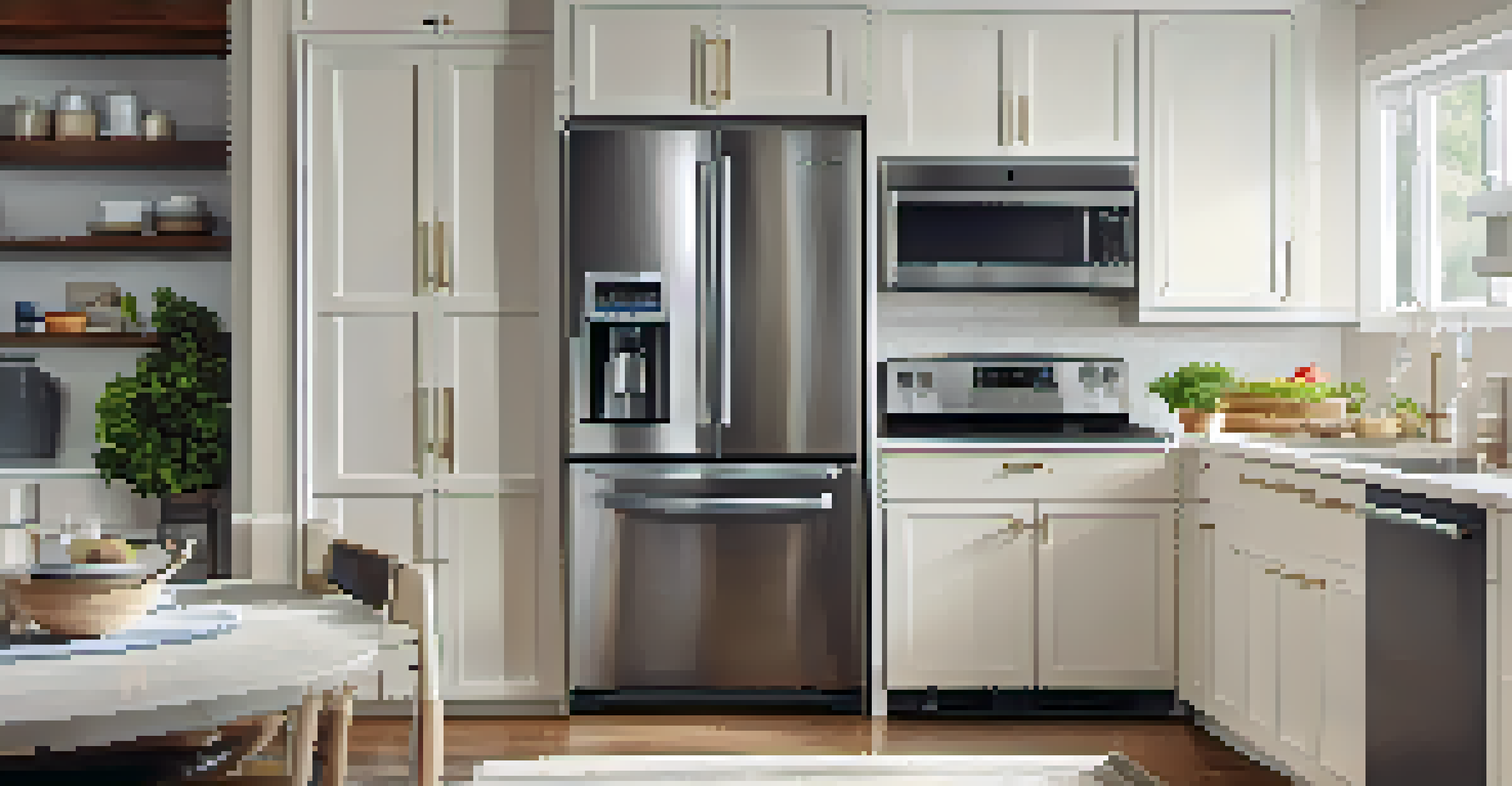Home Maintenance Checklist for Energy Efficiency Improvements

Why Energy Efficiency Matters in Home Maintenance
Energy efficiency isn't just a buzzword—it's crucial for reducing utility bills and minimizing your environmental footprint. By focusing on energy-efficient practices, you can save money while keeping your home comfortable throughout the year.
The greatest threat to our planet is the belief that someone else will save it.
Additionally, an energy-efficient home often means better air quality and increased durability of appliances and systems. When you take care of your home, you're investing in its longevity and your family's well-being.
Consider this: making small changes in your maintenance routine can lead to significant energy savings over time. In this checklist, we'll explore how to identify and implement these improvements.
Inspect and Seal Windows and Doors
One of the easiest ways to enhance energy efficiency is to inspect your windows and doors for drafts. Over time, seals can wear out, leading to unwanted air leaks that cause heating and cooling systems to work overtime.

Try the simple test of placing your hand near the edges of windows and doors on a windy day. If you feel a draft, it’s time to reseal those gaps with weatherstripping or caulk, which are both affordable and easy to apply.
Boost Comfort with Efficient Windows
Inspecting and sealing windows and doors can significantly reduce drafts, leading to lower energy consumption and increased comfort.
By ensuring your windows and doors are properly sealed, you can maintain a comfortable indoor temperature and reduce energy consumption, saving you money on utility bills.
Regular HVAC System Maintenance
Your heating, ventilation, and air conditioning (HVAC) system plays a significant role in your home's energy efficiency. Regular maintenance, like changing filters and scheduling professional inspections, can keep your system running smoothly.
Energy conservation is the foundation of energy independence.
Dirty filters not only reduce airflow but can also lead to increased energy consumption as your system works harder to maintain temperature. Replacing filters every 1-3 months can prevent this issue and improve air quality.
Additionally, consider having your system serviced by a professional at least once a year to check for any underlying issues. A well-maintained HVAC system can lead to substantial energy savings.
Upgrade to Energy-Efficient Appliances
If your appliances are older, they may be using more energy than necessary. Consider upgrading to energy-efficient models that have the ENERGY STAR label, which guarantees lower energy consumption without sacrificing performance.
For instance, modern refrigerators, dishwashers, and washing machines use advanced technology to reduce water and energy usage. Although the initial cost may be higher, the long-term savings on your energy bills can be significant.
Maintain HVAC for Energy Savings
Regular maintenance of your HVAC system, including changing filters and professional inspections, ensures optimal performance and energy efficiency.
When choosing new appliances, take the time to compare their energy ratings. This small effort can lead to smarter choices and a more efficient home.
Consider Insulation Improvements
Proper insulation is key to maintaining your home's temperature and reducing energy costs. Check your attic, walls, and floors for adequate insulation, as this can drastically improve energy efficiency.
If you find areas lacking insulation, adding more can help keep your home warmer in winter and cooler in summer. This not only enhances comfort but also reduces the workload on your HVAC system.
Investing in insulation improvements can yield long-term savings and make a noticeable difference in your home's overall energy efficiency.
Maintain Your Water Heater for Efficiency
Your water heater is another vital component that can impact energy efficiency. Regular maintenance, such as flushing the tank to remove sediment buildup, can improve its efficiency and extend its lifespan.
Setting your water heater to 120 degrees Fahrenheit is a simple adjustment that can lead to significant energy savings. This temperature is usually sufficient for most household needs while reducing energy consumption.
Upgrade to Energy-Efficient Appliances
Switching to ENERGY STAR appliances can lower energy usage and save you money on utility bills over time.
Additionally, consider insulating your water heater and the first few feet of hot and cold water pipes. This can maintain water temperature and cut down on energy loss.
Check Your Home's Lighting Efficiency
Lighting can account for a substantial portion of your energy usage. By swapping out incandescent bulbs for LED or CFL bulbs, you can reduce energy consumption without sacrificing brightness.
LED bulbs last significantly longer and use a fraction of the energy, making them a smart investment. Consider installing timers or smart sensors to ensure lights are only on when needed.

Making these changes not only enhances energy efficiency but also contributes to a more sustainable home environment.
Conduct an Energy Audit for Deeper Insights
If you're serious about improving your home's energy efficiency, consider conducting a professional energy audit. This comprehensive assessment helps identify areas where energy is being wasted and offers tailored recommendations for improvements.
During the audit, experts use various tools to detect leaks, assess insulation levels, and evaluate system performance. This information is invaluable in prioritizing upgrades and maintenance.
By investing in an energy audit, you're taking a proactive step toward a more efficient home, ultimately leading to increased comfort and reduced energy costs.